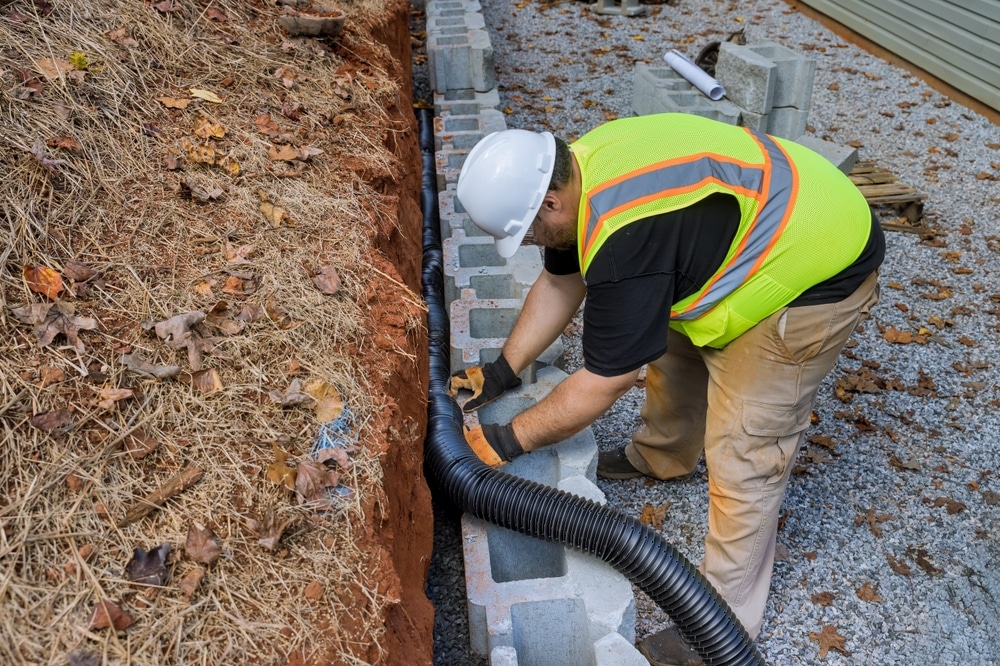There are several areas of prevention that home and property owners will always want to be attentive to around their properties, and preventing water from entering the basement is a top example. Among several methods for achieving this, the use of certain landscaping tips and approaches is often quite effective.
At BioGrass Sod Farms, we’re here to provide clients around Salt Lake City with a huge range of products ideal for this sort of landscaping, from black landscape mulch and premium brown mulch to topsoil delivery, rock and gravel products and more. Here are some basic tips from our team on how to go about landscaping in ways that will help prevent basement flooding or any kind of water in your basement or foundation area.
Why Water Prevention for Basement/Foundation is Vital
Before we get into any specifics on how to prevent water from entering your basement or foundation, let’s quickly go over why this is such an important area of focus for homeowners. Water infiltration and flooding in the basement can lead to a number of serious issues, including structural damage, mold growth, and even health hazards. It can also cause significant financial costs associated with repairs and cleanup.
For instance, excessive water in the basement can weaken the foundation, leading to cracks and structural damage that can compromise the entire property. It can also create an environment for mold and mildew growth, which not only smells bad but can also cause health problems for those living in the home.
Furthermore, if your basement is finished or used as a living space, flooding and water infiltration can ruin furniture, flooring, and other valuable possessions. This is why proactive measures to prevent water from entering the basement are crucial for every homeowner.
Yard Grading
One of the most important landscaping approaches for preventing basement flooding is yard grading. This refers to the slope and elevation of your property, which should be designed in a way that naturally diverts water away from the foundation.
Ideally, the ground surrounding your home should slope downward at least 6 inches over a distance of 10 feet. This will allow rainwater to flow away from your home instead of pooling near the foundation and potentially seeping into the basement.
If you notice any areas where water seems to be pooling or collecting near the foundation, it’s important to address this issue as soon as possible by regrading these areas or installing drainage solutions like French drains or gutters.
Proper Drainage System
Another essential aspect of preventing water infiltration in basements is having a robust and efficient drainage system in place. This includes gutters, downspouts, sump pumps, and French drains.
Gutters should be regularly cleaned to ensure proper water flow away from the home. Downspouts should also be directed at least 10 feet away from the foundation and should have extensions if necessary.
Sump pumps are particularly important for homes with basements below the water table level. These pumps help remove excess water that collects under the foundation before it can seep into the basement.
Use of Mulch
When you’re considering landscaping options for water prevention, mulch may not be the first thing that comes to mind. However, the use of organic mulch like shredded leaves or bark can significantly help absorb excess moisture and prevent it from reaching your home’s foundation.
Additionally, dark-colored mulches such as black landscape mulch can absorb heat from the sun and warm up soil faster, which reduces standing water and helps keep the ground around your home drier.
Native Plants
Another possible cause of basement water in some cases is soil erosion, which can occur due to heavy rains or strong winds. You can prevent this by incorporating native plants into your landscaping design.
Native plants have extensive root systems that help retain the soil and prevent erosion. They also require less water, which means there will be less excess moisture in the ground surrounding your home.
Rain Garden
If your home or building receives lots of rainwater runoff, a rain garden may be an effective solution for preventing basement water. A rain garden is a shallow depression in the ground planted with native plants that collect and filter excess water from your property.
This not only helps prevent flooding but also filters pollutants and improves the overall health of your landscaping. Rain gardens can also add aesthetic value to your property by creating a beautiful and functional feature.
Preventing water infiltration in basements is crucial for every homeowner to avoid structural damage, mold growth, and financial costs. Proper yard grading, drainage systems, use of mulch and native plants, and implementing features like rain gardens are all excellent ways to protect your home from basement flooding. Contact BioGrass Sod Farms today for all your landscaping product needs around SLC – we’re here to help!Â
